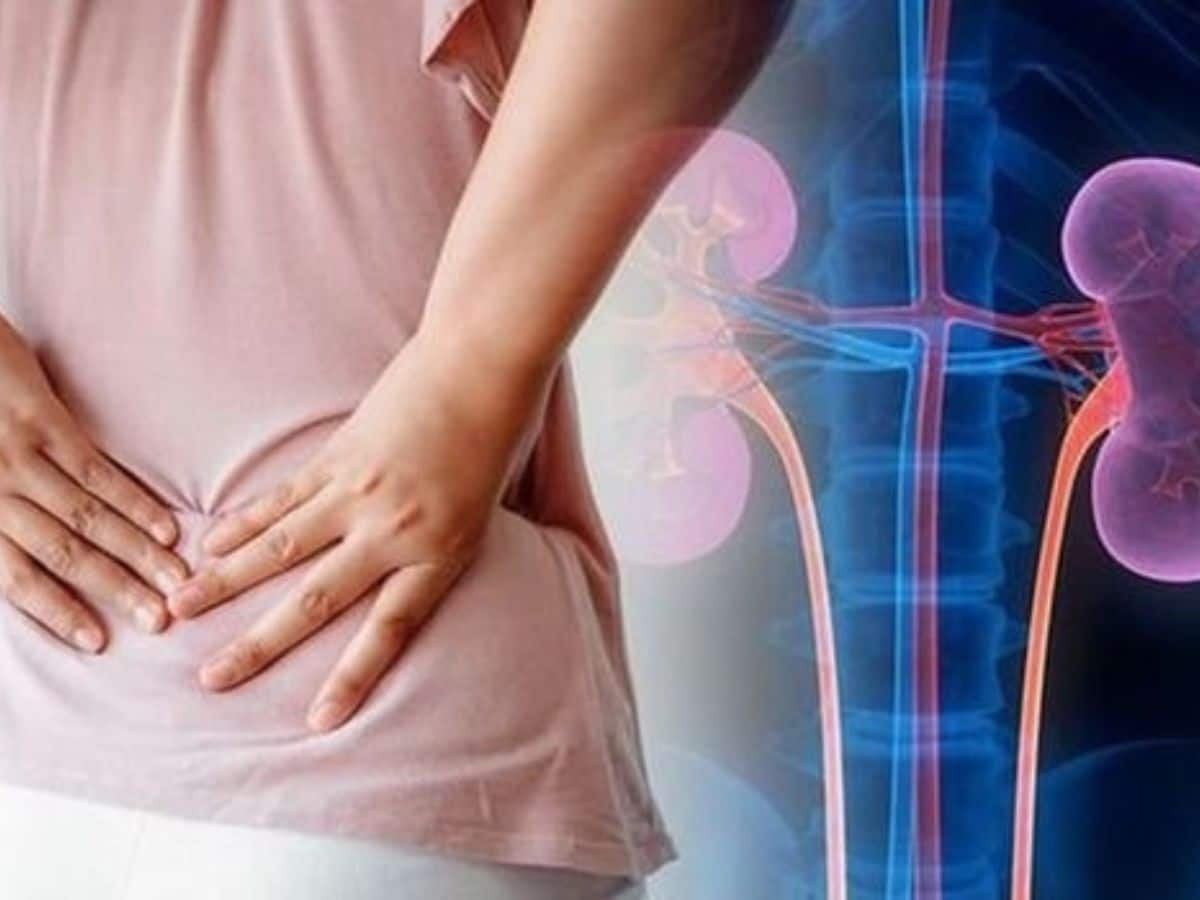Share this @internewscast.com

Here’s a tip-off for you: Discover the seven perilous effects of high blood pressure and diabetes on men’s kidneys. Grasping how these health conditions interfere with your kidney’s health is key to stopping and controlling further damage.
Chronic kidney disease (CKD) is a significant health concern affecting millions of people worldwide. The prevalence of chronic kidney disease in India is about varies between 1 to 13% across different regions of the country. Because of the limited access and other challenges related to healthcare, 50% per cent patients of with chronic kidney disease are diagnosed at an advanced stage. There are also a limited number of specialists in the country to cater to high volumes of patients and these specialists are disproportionately distributed.
Chronic Kidney Disease: How Hypertension And Diabetes Affect Your Kidney Health
Chronic kidney disease may commonly be an outcome of prolonged diabetes mellitus and hypertension. Although there are several other causes because these two conditions are so prevalent (and increasing in prevalence) in India, so is chronic kidney disease. It is extremely important to actively control hypertension and diabetes in its early stages to prevent damage to the kidneys. Paradoxically an emerging body of evidence is suggesting that some categories of drugs which may be part of blood pressure management can damage the kidneys. Diuretics are known to strain the kidneys and the long-term effects of Angiotensin Enzyme (ACE) Inhibitor usage are being looked at in connection to chronic kidney disease. Painkillers are another important category of drugs which can affect the kidneys.
“Unnecessary and excessive usage of medicines should be avoided to safeguard the kidneys. As we begin to understand some immune system mediated causes for chronic kidney disease, it is important to lead a disciplined healthy lifestyle to help manage immune system mediated illnesses,” said Dr Kushal Banerjee, Senior Homeopath, Dr Kalyan Banerjee’s Clinic.
“Once diagnosed with chronic kidney disease it is vital that any pre-existing prescriptions be looked at closely to remove any medicine or supplement which may be contributing to the problem. Observing dietary precautions advised for patients with chronic kidney disease is an important part of managing it. Non-compliance with dietary restrictions can quickly make the kidney function test readings go up. Moderate amounts of exercise, drinking fluids in advised quantities and leading a disciplined healthy life will help manage many aspects of chronic kidney disease,” he added.
Factors That Affect Your Kidney Health
Lifestyle choices play a crucial role in the development and progression of kidney disease, with men being particularly vulnerable to certain risk factors. Understanding how lifestyle choices impact kidney health and implementing preventive measures is essential for men to reduce their risk of developing kidney disease.
Men are more likely to develop kidney disease compared to women, primarily due to various lifestyle factors. Dr Kunal Raj Gandhi, Consultant, Nephrology, Amrita Hospital Faridabad, said that some of the key risk factors for kidney disease in men include:
- High Blood Pressure: Men are more prone to hypertension, which is a leading cause of kidney damage.
- Diabetes: Men with diabetes are at a higher risk of developing kidney disease.
- Obesity: Excess weight puts strain on the kidneys and increases the risk of kidney damage.
- Smoking: Tobacco use can worsen kidney function and accelerate the progression of kidney disease.
- Unhealthy Diet: Consuming high amounts of sodium, processed foods, and sugary beverages can harm kidney health.
- Lack of Physical Activity: Sedentary lifestyles contribute to obesity and other risk factors for kidney disease.
Now, that you know what factors contribute to poor kidney health, let’s look into what you can do to keep the organ safe.
How To Keep Your Kidneys Safe?
Dr. Gandhi also added that to reduce the risk of kidney disease, men can adopt the following preventive strategies:
- Maintain a Healthy Weight: Achieving and maintaining a healthy weight through a balanced diet and regular exercise can help prevent kidney disease.
- Manage Blood Pressure and Diabetes: Regular monitoring and management of blood pressure and blood sugar levels are crucial for kidney health.
- Quit Smoking: Smoking cessation is essential to protect the kidneys and overall health.
- Limit Sodium Intake: Reducing sodium consumption helps lower blood pressure and protects the kidneys.
- Stay Hydrated: Drinking an adequate amount of water supports proper kidney function.
- Eat a Balanced Diet: Consuming a diet rich in fruits, vegetables, whole grains, and lean proteins promotes overall health, including kidney health.
Monitoring and Management
Regular health check-ups, including kidney function tests, are important for early detection and management of any potential issues. Men should work closely with healthcare providers to monitor their kidney health and address any concerns promptly.














